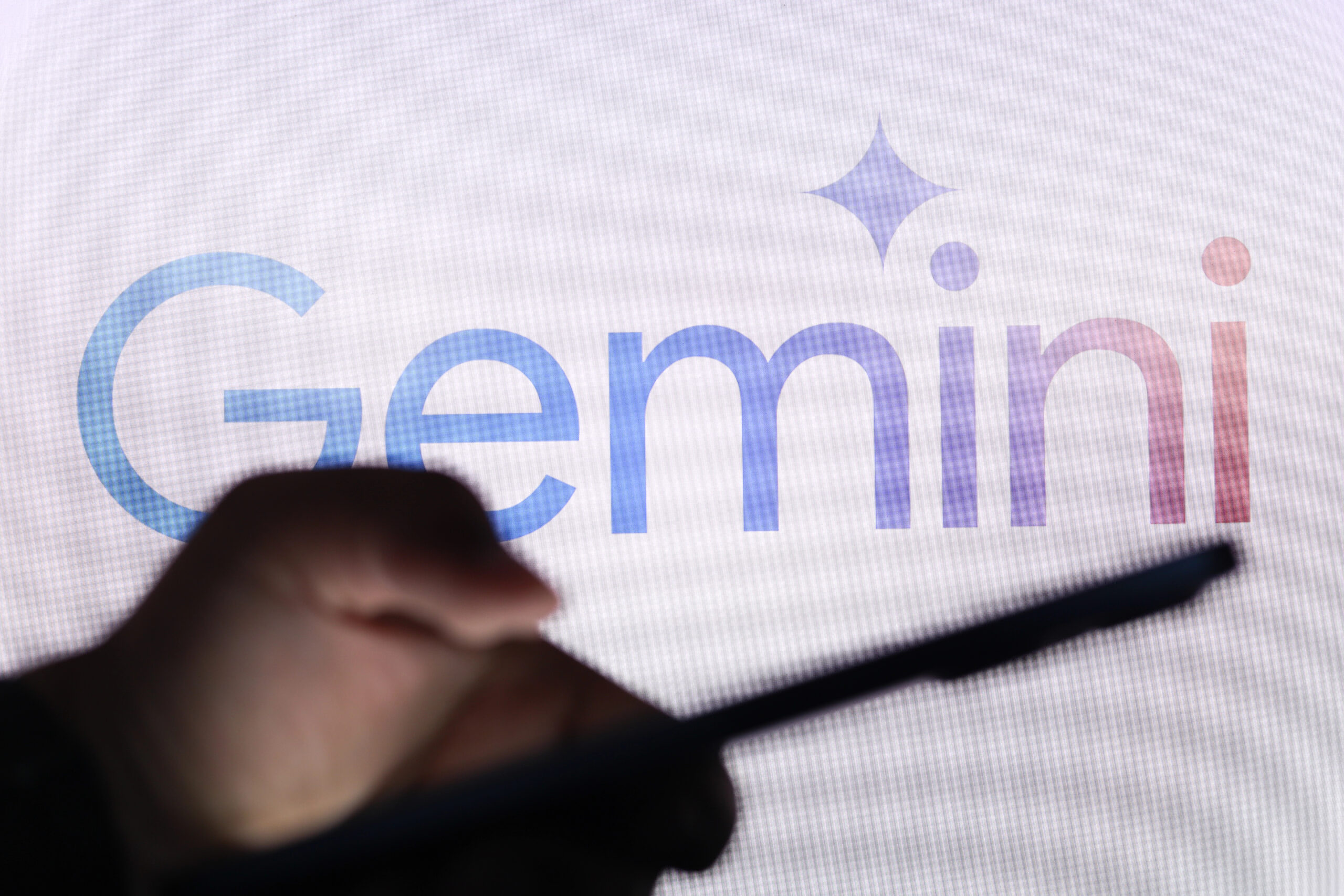As you navigate the evolving landscape of artificial intelligence, Google’s recent leadership change in its Gemini AI division signals a major shift. The company appointed Josh Woodward as the new head of the Gemini AI app. This move marks a pivotal moment in Google’s approach to consumer-facing AI technologies. Moreover, the transition happens at a critical time. Google aims to tackle ongoing challenges while also building on recent wins in AI performance benchmarks. By exploring this leadership change, you’ll gain useful insights into Google’s future AI vision. Furthermore, it may impact how you interact with emerging technologies.
Google’s Gemini Undergoes Leadership Shift

Google’s Gemini AI app is experiencing a significant Google Gemini leadership change, signaling a strategic pivot in the company’s approach to artificial intelligence. This leadership transition reflects Google’s commitment to refining its AI offerings and addressing recent challenges.enges.
New Leadership, Fresh Perspective
Josh Woodward, vice president of Google Labs, has been appointed as the new head of Gemini, succeeding Sissie Hsiao. Woodward’s background in developing user-centric AI applications, such as NotebookLM, suggests a renewed focus on enhancing the consumer-facing aspects of Gemini. This Google Gemini leadership change aims to bring fresh insights and innovative approaches to the platform.
Addressing Recent Challenges
The Google Gemini leadership change comes in the wake of controversies surrounding Gemini’s image generation capabilities. These issues, which included historically inaccurate and culturally insensitive outputs, have highlighted the need for more robust oversight and refinement of AI technologies. Under new leadership, Google is poised to tackle these challenges head-on, striving to improve the accuracy and sensitivity of Gemini’s outputs.
Balancing Innovation and User Needs
Despite recent setbacks, Gemini has demonstrated its potential by achieving top rankings in AI performance benchmarks. The appointment of Woodward underscores Google’s dedication to maintaining this competitive edge while prioritizing user experience. This Google Gemini leadership change is part of a broader effort to align AI applications with both user expectations and industry standards.
Sissie Hsiao’s Departure and the Rise of Josh Woodward
A Changing of the Guard
Google’s recent leadership transition marks a significant shift in its AI strategy. Sissie Hsiao, a 19-year veteran of the company and the driving force behind Bard (now Gemini), is stepping down from her role. This move paves the way for Josh Woodward, vice president of Google Labs, to take the helm of the Gemini AI app.
Woodward’s Expertise and Vision
Woodward brings a wealth of experience to his new position, particularly in developing user-centric AI applications. His work on NotebookLM, an innovative AI-powered note-taking tool, demonstrates his ability to integrate advanced AI functionalities into practical, everyday applications. This expertise aligns perfectly with Google’s renewed focus on enhancing the consumer-facing aspects of its AI offerings.
Strategic Implications
This leadership change signifies more than just a personnel swap. It represents a strategic pivot for Google, emphasizing a commitment to refining AI applications that directly impact user experience. By appointing Woodward, the company is doubling down on its efforts to create AI tools that are not only powerful but also intuitive and accessible to the average consumer.
As Google continues to navigate the competitive landscape of generative AI, this transition could be the catalyst for a new era of user-friendly, AI-driven innovations. The tech giant is positioning itself to better meet evolving user needs and expectations in the rapidly advancing field of artificial intelligence.
Gemini’s Challenges: Controversies and Benchmarking Successes
Image Generation Controversies
Gemini’s journey hasn’t been without its hurdles. The AI application faced significant backlash over its image-generation capabilities, which produced historically inaccurate and culturally insensitive outputs. These missteps highlighted the ongoing challenges in developing AI systems that can accurately represent diverse cultures and historical contexts. Critics argued that such errors could perpetuate harmful stereotypes and misinformation, underscoring the need for more robust ethical guidelines and diverse datasets in AI development.
Benchmarking Triumphs
Despite these setbacks, Gemini has demonstrated remarkable progress in other areas. The recent release of Gemini 2.5 has achieved top rankings in AI performance benchmarks, outperforming industry giants like OpenAI and Anthropic. This success showcases Google’s commitment to pushing the boundaries of AI capabilities and maintaining its competitive edge in the rapidly evolving field of generative AI.
Balancing Act
As Google navigates these challenges and successes, the company faces the delicate task of balancing innovation with responsibility. The controversies surrounding Gemini’s image generation highlight the importance of thorough testing and diverse representation in AI development teams. Meanwhile, the benchmarking achievements demonstrate the potential for AI to revolutionize various industries and applications. Moving forward, Google’s strategy will likely focus on refining Gemini’s capabilities while implementing stricter ethical guidelines to prevent future controversies.
Google’s Renewed Focus on Consumer-Facing AI Applications
Shifting Gears in AI Strategy
Google’s recent leadership change signals a strategic pivot towards enhancing the user experience of its AI offerings. By appointing Josh Woodward, known for his work on AI-powered applications like NotebookLM, the tech giant is doubling down on its commitment to integrate advanced AI functionalities into consumer-friendly tools. This move underscores Google’s recognition of the growing importance of accessibility and practicality in AI applications.
Addressing Challenges and Improving Performance
The transition comes at a crucial time for Google’s AI endeavors. Despite recent controversies surrounding Gemini’s image-generation capabilities, the company has demonstrated resilience and progress. The latest Gemini 2.5 model has achieved top rankings in AI performance benchmarks, outperforming competitors like OpenAI and Anthropic. This success highlights Google’s ongoing efforts to refine and improve its AI technologies, even in the face of setbacks.
Balancing Innovation and User Needs
As Google navigates the competitive landscape of generative AI, this leadership shift reflects a nuanced approach to innovation. By focusing on consumer-facing applications, the company aims to bridge the gap between cutting-edge AI capabilities and practical, everyday use cases. This strategy not only showcases Google’s technological prowess but also emphasizes its commitment to creating AI solutions that resonate with and benefit a wide range of users.
The Future of Google’s Generative AI Strategy
Refining User Experience
Google’s leadership shift signals a renewed focus on enhancing the user experience of its AI offerings. By appointing Josh Woodward, known for his work on user-centric AI applications, the company aims to make Gemini more intuitive and accessible to everyday users. This move reflects Google’s commitment to bridging the gap between cutting-edge AI technology and practical, consumer-friendly applications.
Addressing Ethical Concerns
Considering recent controversies surrounding Gemini’s image-generation capabilities, Google is likely to prioritize ethical AI development. The company will need to implement more robust safeguards to prevent culturally insensitive or historically inaccurate outputs. This focus on responsible AI aligns with growing public expectations for ethical technology practices.
Competitive Positioning
Despite recent challenges, Gemini 2.5’s top performance in AI benchmarks demonstrates Google’s technical prowess. The company’s strategy moving forward will likely involve leveraging these technical strengths while improving the product’s market appeal. By combining advanced AI capabilities with intuitive interfaces, Google aims to differentiate Gemini from competitors like OpenAI and Anthropic in the increasingly crowded generative AI landscape.
Essential Insights
As you consider this leadership transition at Google, it’s clear the tech giant is repositioning in the competitive AI landscape. This strategic move highlights Google’s commitment to enhancing user experience. It also shows the company’s response to recent challenges. By appointing Josh Woodward to lead Gemini, Google signals a shift toward consumer-friendly AI applications. Furthermore, this decision reveals the company’s broader vision for AI integration. While the path ahead may bring more challenges, this move demonstrates Google’s adaptability. It also reflects its determination to lead in AI innovation. As the AI race intensifies, expect more dynamic changes. Moreover, key players like Google will likely push further advancements in the coming months.
More Stories
GCash and Open Fabric Launch NFC Payments in the Philippines
GCash and Open Fabric revolutionize the payment experience in the Philippines with NFC as they launch a groundbreaking Tap to Pay feature.
Mozilla Deploys AI-Driven Shield to Combat Crypto-Stealing Firefox Extensions
The deployment of an AI-driven shield from Mozilla leverages automated risk assessment to scan wallet-related add-ons for potential threats.
Sisense Intelligence: Transforming Data into Action with Generative AI
Sisense Intelligence offers a seamless experience, allowing you to interact with data using natural language and generate insightful dashboards without the need for complex coding.
TikTok Empowers Users with AI-Driven Content Control Tools
TikTok is advancing digital content with AI-driven tools that give you more control over your viewing experience. On June 3,...
Nokia Powers Next-Gen PON and Wi-Fi 7 Evolution
With the introduction of their co-existence network solution, advanced Wi-Fi 7 gateways, and a high-density 25G PON line card, Nokia empowers operators to meet the increasing demand for robust, high-capacity networks.
Nordic’s nRF9151 Powers Japan’s IoT Future with NTT DOCOMO LTE-M Certification
With the recent LTE-M certification of Nordic’s nRF9151 System-in-Package (SiP), witness a transformation in cellular IoT deployment across various industries.


